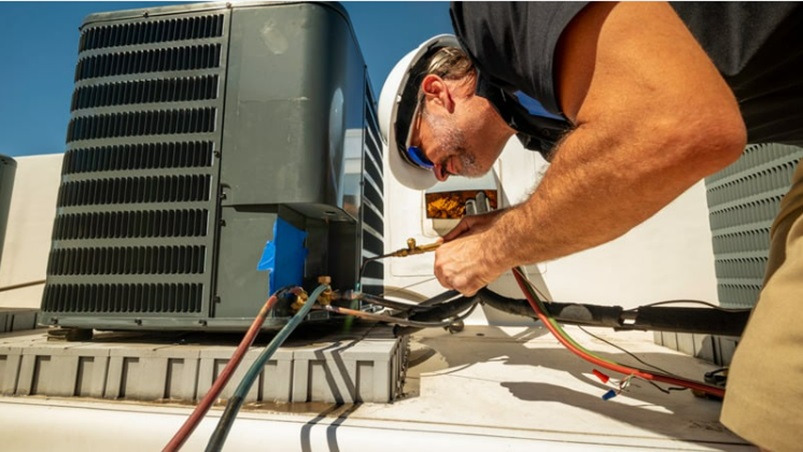Maintaining your HVAC system is essential for ensuring it operates efficiently, especially in regions like Rotonda, where climate control is crucial year-round. A well-maintained HVAC in Rotonda not only helps reduce energy costs but also extends the lifespan of the system, providing comfort without the risk of unexpected breakdowns. Understanding key maintenance steps can make a significant difference in optimizing your system for better energy efficiency. Whether you are focusing on routine upkeep or looking to enhance your system’s performance, these essential HVAC maintenance tips will help you minimize energy use while effectively regulating your home’s temperature.
Regular Maintenance for Optimal Performance
Routine maintenance is crucial for ensuring that your HVAC system functions at peak performance. One of the most common tasks is replacing or cleaning your filters regularly. Dirty filters not only reduce air quality but also force your system to work harder, increasing energy consumption. In some cases, homeowners may notice black HVAC filters. If this happens, it’s important to investigate the potential causes of black HVAC filters to prevent long-term issues.
Check and Clean the Vents
A straightforward yet effective method to enhance energy efficiency is to routinely clean and inspect your vents. Dust and debris can accumulate in the vents, reducing airflow and causing your system to work harder. Additionally, ensure that furniture or curtains aren’t blocking the airflow from the vents. By doing this, your HVAC system can distribute heat or cool air more evenly throughout the home, reducing energy consumption and lowering your bills.
Thermostat Settings and Upgrades
Upgrading to a programmable or smart thermostat can greatly enhance your energy efficiency. Smart thermostats allow you to set specific temperatures for different times of the day, ensuring that your system isn’t overworking when no one is home. Keeping your thermostat set at a consistent temperature is another effective way to maintain efficiency. Want to learn more about how your HVAC system functions? Consider learning how an HVAC system works to help you understand its mechanics.
Inspect and Seal Ductwork
Leaky ductwork can result in considerable energy loss as air escapes from your ducts, forcing your HVAC system to work harder to maintain the desired temperature. Periodically inspect your ductwork for any leaks or gaps and have them sealed properly. This will not only improve efficiency but also enhance the overall comfort of your home.
Schedule Annual Professional Maintenance
While there are many maintenance tasks homeowners can handle on their own, it’s essential to schedule annual professional maintenance. HVAC technicians can conduct a thorough inspection, checking everything from refrigerant levels to system calibration, ensuring that your unit is operating at its best. Professional maintenance helps catch any potential issues early, preventing costly repairs down the line.
Conclusion
Proper maintenance of your HVAC system is essential for maximizing energy efficiency. Simple actions like cleaning filters and upgrading your thermostat can greatly improve performance and reduce energy consumption. By regularly inspecting your system and seeking professional help when needed, you can ensure your HVAC system runs efficiently and lasts for many years. Remember to address issues like black filters and leaky ducts promptly to avoid more significant problems in the future.
Frequently Asked Questions
1. How often should HVAC filters be changed?
It is advisable to replace your HVAC filters every 1 to 3 months, depending on usage and the type of filter employed. Households with pets or allergy sufferers may need to change their filters more frequently.
2. What is the best temperature setting for energy efficiency?
For optimal comfort and energy efficiency, it’s recommended to set your thermostat to 68°F during winter and 78°F in summer.
3. Why is my HVAC system making unusual noises?
Unusual noises may signal a range of problems, including loose components, debris in the vents, or more serious mechanical issues. It’s advisable to have a professional examine your system to accurately diagnose and resolve the problem.

